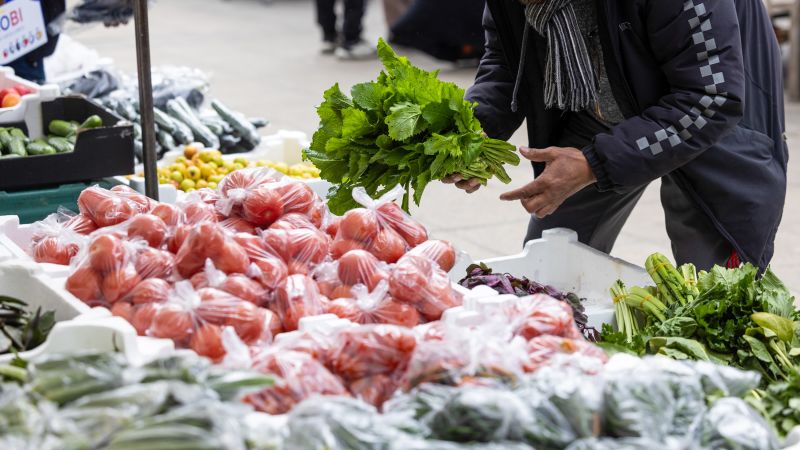British business groups are concerned about the impact of newly announced post-Brexit charges on plant and animal imports on food prices. Starting April 30, UK businesses importing most animal products, plants, or plant products from the European Union through the Port of Dover and Eurotunnel will have to pay up to £145 per delivery. The charges will be based on the number of different products in a delivery, potentially leading to increased costs for importers and consumers. This could halt the decline in food inflation, which had recently eased to 5% after reaching more than 10% in October.
Trade groups like the Cold Chain Federation have warned that the new charges could push up food prices as importers pass on the costs to consumers. William Bain from the British Chambers of Commerce expressed concern over the impact on small and medium-sized importers as well as retailers, cafes, and restaurants. They are urging the government to reconsider the import charge plans to avoid higher costs for businesses and consumers during a time when efforts should be made to reduce business expenses and food price inflation.
The new charges are also expected to affect smaller European exporters, who may struggle to absorb the extra costs imposed by UK importers. This could result in a decrease in the availability of smaller, specialist products for consumers in the UK. The charges are meant to cover the government’s costs of operating post-Brexit border facilities and will coincide with the introduction of physical checks on many animal and plant products from the EU. However, the lack of time given to businesses to prepare for these changes has been criticized by trade groups.
Some industry associations, such as the Horticultural Trades Association, have expressed concerns about the sudden introduction of charges, which they believe will have a negative impact on UK horticulture’s competitiveness and consumer choice. The association represents a wide range of businesses that rely on imported plants and products. While the government has stated that the charges are at the lower end of the discussed range and are meant to support smaller businesses, trade groups argue that they will still increase costs and disrupt the flow of imported goods. It remains to be seen how businesses and consumers will adapt to these new charges and their potential effects on the food supply chain.


